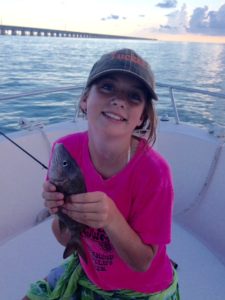The ongoing battle over the planned marine reserve in Biscayne Bay has scientists and citizens scratching our heads. The impassioned opposition to the proposed protection of a tiny sliver of our shared resource is stunningly out of proportion to what the National Park Service (NPS) has proposed. Moreover, the arguments made by opponents have not been based on science and are mostly illogical. For example, citing a scientific paper I co-authored, Representative Ros-Lehtinen correctly pointed out in an op-ed that a marine reserve in Biscayne Bay National Park wouldn’t protect Florida’s remaining corals from global warming. However, this is analogous to arguing brushing your teeth is unnecessary because it doesn’t prevent cancer. Protecting corals from climate change isn’t the purpose of a marine reserve, although reserves provide countless other benefits. If Rep. Ros-Lehtinen wants to protect corals from climate change, her party and her CORAL bill should support the move to renewable energy, one of the few actions that could in fact protect and restore corals and the reefs they build.
While marine reserves are not a panacea for everything afflicting the ocean, the science indicates, in literally hundreds of case studies, that reserves can greatly benefit fishes, fisherman, and coastal economies based on tourism. This is because the fishes that are allowed to grow large and reproduce within a protected area eventually leave (with their babies) and can then be caught. This is called the “spillover effect” and is the reason why trophy fishes are so often caught adjacent to reserves, like the Merritt Island National Wildlife Refuge.
Marine reserves lead to bigger fishes – Florida needs more of them
The resistance of fishing groups and some of our elected officials stems from the “freedom to fish” mentality that considers fishing a right that should not be constrained. To most Floridians, this is preposterous: we can’t drive, hunt, skateboard, smoke, fly a kite or be naked anywhere we’d like. Government places restrictions on all kinds of activities to separate things that don’t belong together, e.g., highways and playgrounds. In marine conservation, this is called spatial planning – working within constraints of the seascape, the local ecology, and the demands of user groups, we zone the oceans to try to keep everybody happy and safe. The NPS is only proposing some much needed zoning to reduce the dangerous (occasionally chaotic) comingling of activities currently taking place throughout the Bay. To me, setting aside 6% of a national park, so people can observe wildlife in a safe, low impact manner is a no-brainer. Recreational fishing would still be allowed in 94% of the parks waters and across thousands of square miles of prime fishing habitat outside the parks boundaries.
I work mainly on the effects of climate change on corals and other marine critters. As Rep. Ros-Lehtinen pointed out, my work shows that marine reserves do little to mitigate those impacts. Yet, as a scientist, I still strongly support the establishment and expansion of marine reserves throughout Florida for their proven benefits for fish populations. If the planned Biscayne Bay reserve has a flaw, it is that it is way too small – a groundbreaking study recently found that to maximize benefits for fish and fisherman, at least 30% of the oceans should be protected (essentially creating nursery grounds that would massively boost the profitability of commercial fishing).
 I also support the planned reserve as a father. Last summer, my family and I spent our vacation in the Florida Keys, which we’ve been doing since the early 1970s. Every day, we snorkeled in the Sombrero Reef Special Protected Area, where, safe from harvesting, the fishes are absolutely stunning. Snorkeling just a mile outside the reserve was a totally different experience; the fish are much smaller, scarce, and afraid.
I also support the planned reserve as a father. Last summer, my family and I spent our vacation in the Florida Keys, which we’ve been doing since the early 1970s. Every day, we snorkeled in the Sombrero Reef Special Protected Area, where, safe from harvesting, the fishes are absolutely stunning. Snorkeling just a mile outside the reserve was a totally different experience; the fish are much smaller, scarce, and afraid.
Scientists, snorkelers, SCUBA divers, reasonable fisherman, and parents don’t have lobbying groups, but if we did, we’d deploy them to convince our representatives to support the Biscayne Bay reserve and the general expansion of protected areas throughout Florida. Instead, we have to rely on public comment periods, during which time 90% of 43,000 pieces of correspondence received were in support the marine reserve. Congress simply hasn’t listened.
Leave a Reply